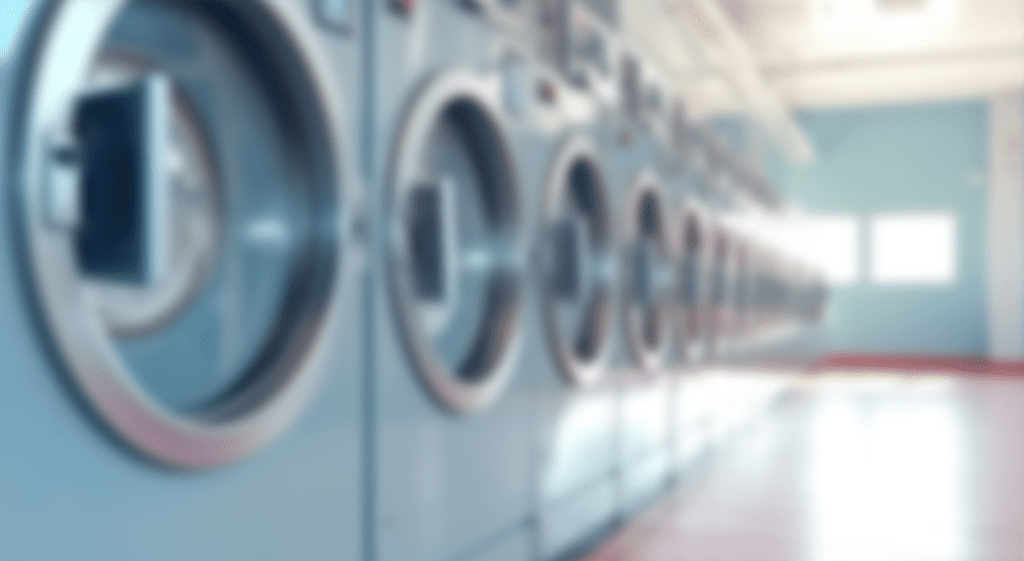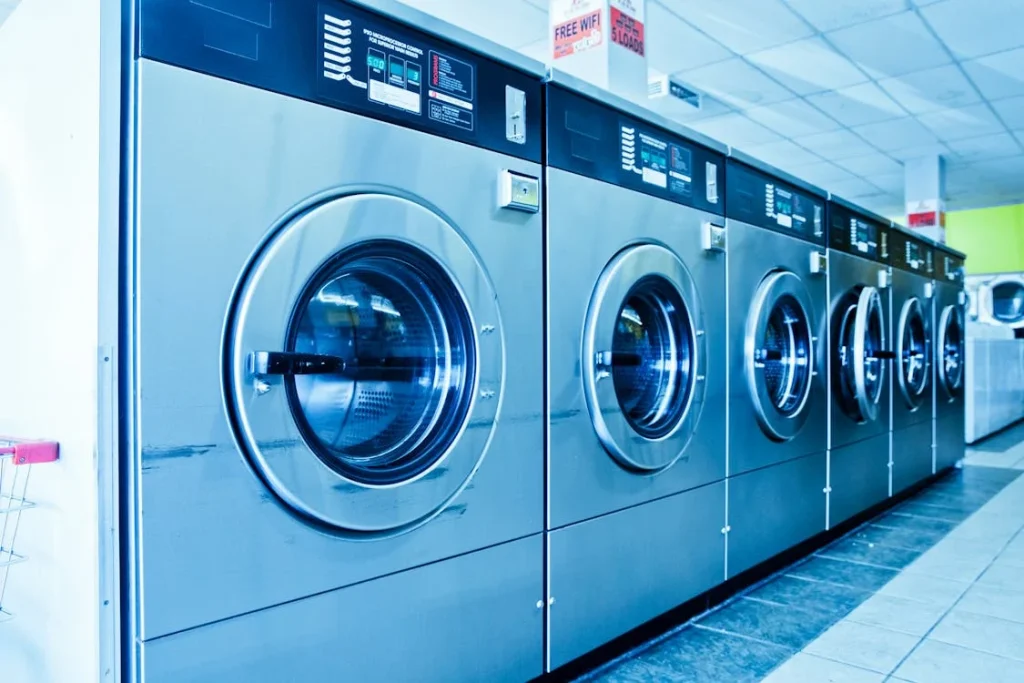Thinking about upgrading or setting up a commercial laundry facility? You’ve landed in the right spot! Finding the perfect commercial washers and dryers for sale is a crucial step for businesses like laundromats, hotels, healthcare facilities, and even large-scale industrial operations. It’s not just about washing and drying clothes; it’s about efficiency, reliability, and ultimately, your bottom line. Let’s dive into what you need to know to make a smart investment.
Tabla de contenidos
- 1. Why Invest in Commercial-Grade Laundry Equipment?
- 2. Factors to Consider Before Buying
- 3. Top Brands and Features to Look For
- 4. Finding the Best Deals and Suppliers
- 5. Installation and Maintenance: What to Expect
- 6. Making the Right Choice for Your Business
- 7. Ready to Find Your Ideal Commercial Washer and Dryer?
- 8. Frequently Asked Questions (FAQs)
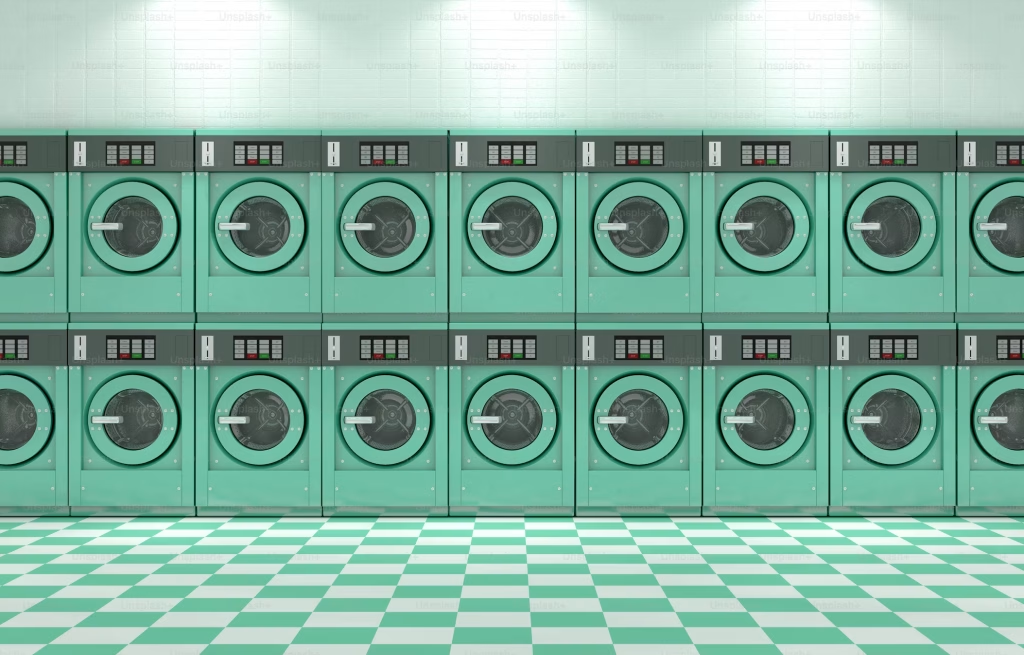
1. Why Invest in Commercial-Grade Laundry Equipment?
Commercial-grade laundry equipment isn’t just a beefed-up version of what you have at home. These machines are built to handle the relentless demands of continuous, heavy-duty use. They’re engineered with robust components and advanced features designed to tackle large volumes of laundry day in and day out. This is a significant leap from residential machines, which simply aren’t designed for such intense operation.
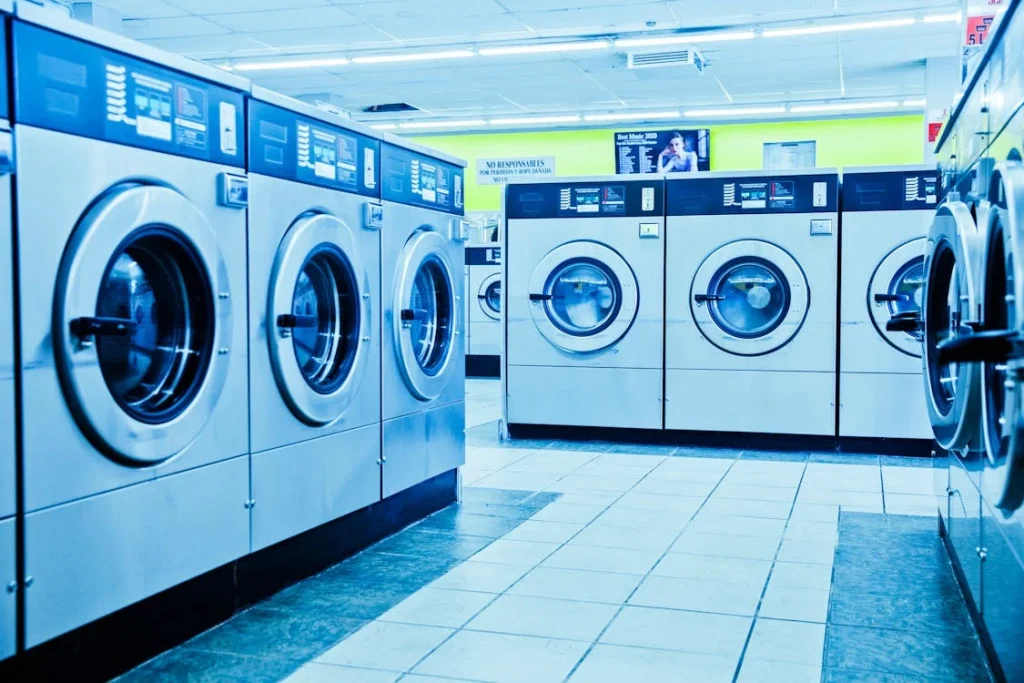
1.1. Understanding the Demands of Commercial Use
Imagine the sheer volume of towels a hotel goes through daily, or the constant need for clean linens in a hospital. Commercial washers and dryers are designed to withstand this kind of rigorous usage without breaking down frequently. They feature stronger motors, more durable drums, and control systems built for constant operation. This inherent robustness is a primary reason why businesses choose commercial over residential units.
1.2. Durability and Longevity: A Key Advantage
While the initial investment in commercial washers and dryers for sale might seem higher than residential options, their extended lifespan often makes them more cost-effective in the long run. These machines are built to last, enduring thousands upon thousands of cycles that would quickly wear out a typical home appliance. Investing in quality now can save you significant replacement costs and downtime in the future.
1.3. Efficiency and Cost Savings in the Long Run
Beyond durability, commercial laundry equipment often boasts superior efficiency. Many models are designed to use less water, energy, and detergent per load compared to their residential counterparts. Over time, these savings can add up significantly, reducing your operational costs and contributing to a more sustainable business practice. This efficiency is a major draw for businesses looking to optimize their expenses.
2. Factors to Consider Before Buying
Before you start browsing through listings of commercial washers and dryers for sale, take a step back and assess your specific needs. Jumping into a purchase without considering key factors can lead to choosing equipment that isn’t the right fit for your operation. Let’s explore some crucial aspects to think about.
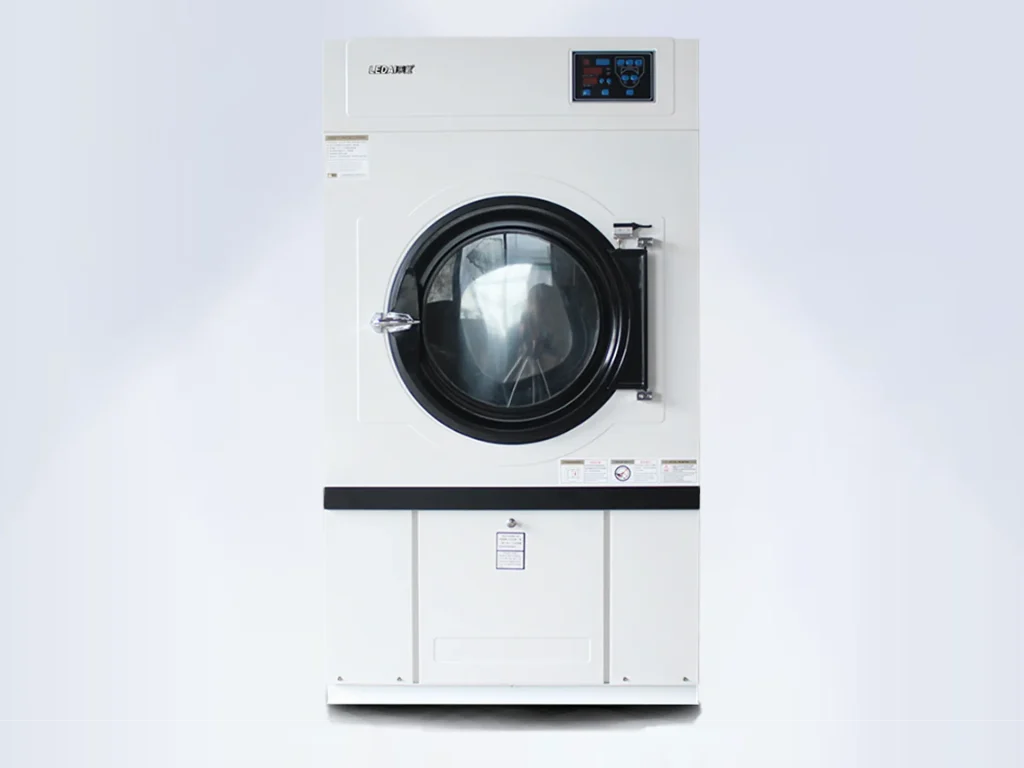
2.1. Identifying Your Specific Laundry Needs
Every business has unique laundry requirements. A small bed and breakfast will have different needs than a large hospital or a busy laundromat. Understanding these specific needs is the first and most important step in your search for the right commercial laundry equipment.
2.1.1. Volume of Laundry
How much laundry do you process on a daily or weekly basis? This will directly influence the capacity of the washers and dryers you need. Overloading machines can lead to inefficient cleaning and premature wear, while underutilizing large machines can waste energy and resources.
2.1.2. Types of Items Being Washed and Dried
Are you primarily dealing with standard linens, delicate fabrics, heavily soiled items, or bulky materials like blankets and comforters? Different types of laundry may require specific wash cycles, temperature settings, and drum sizes. Ensure the machines you choose can handle the variety of items you need to process.
2.1.3. Space Availability
Commercial laundry equipment can be quite large. Carefully measure the space you have available to ensure the machines you’re considering will fit comfortably with adequate room for operation and maintenance. Consider door swings, ventilation requirements, and access for loading and unloading.
2.2. Exploring Different Types of Commercial Washers
Just like cars, commercial washers come in various models, each with its own set of features and benefits. Understanding these different types will help you narrow down your options based on your specific needs and priorities.
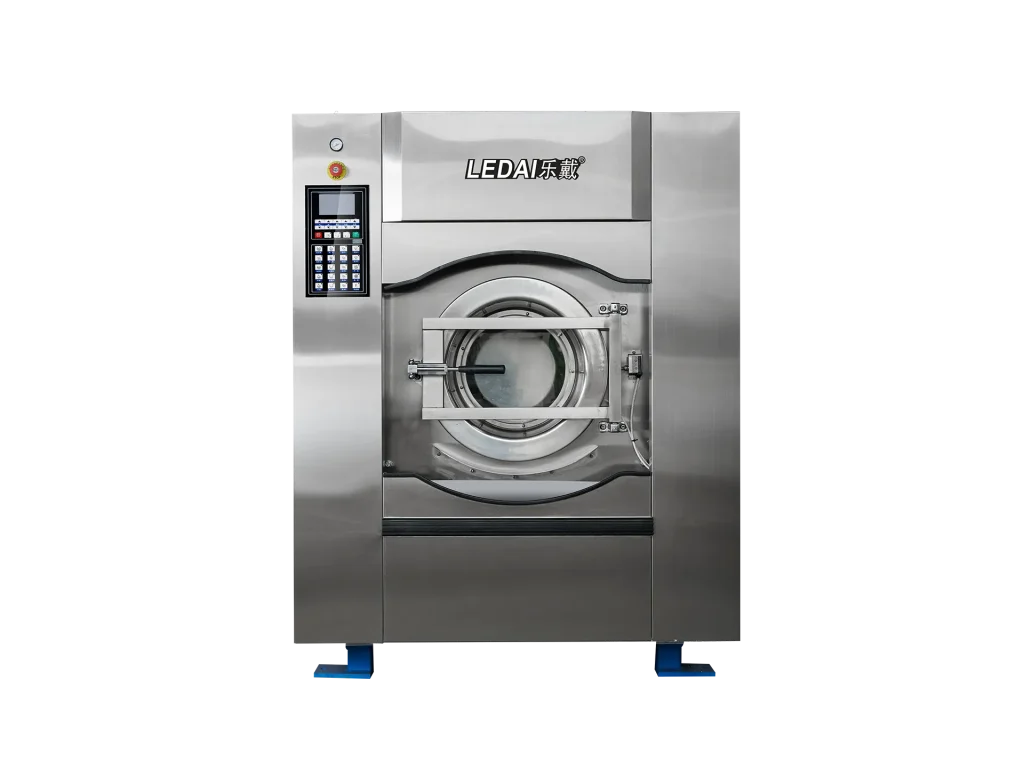
2.2.1. Front-Load Washers: Efficiency and Gentle Care
Front-load commercial washers are known for their water and energy efficiency. They use gravity to tumble clothes, requiring less water than top-load models. They are also generally gentler on fabrics, making them a good choice for delicate items. You can explore a range of industrial washing machines at https://spinwashing.com/industrial-washing-machine/.
2.2.2. Top-Load Washers: Traditional and Robust
Top-load commercial washers are a more traditional design and are often favored for their robust construction and ease of use. While they typically use more water than front-load models, they can be a reliable option for certain applications, especially where quick cycle times are important. You can find various commercial washing machine options at https://spinwashing.com/commercial-washing-machine/.
2.2.3. High-Efficiency Washers: Water and Energy Savings
High-efficiency (HE) commercial washers, whether front-load or top-load, are designed to minimize water and energy consumption. They often feature advanced sensors and control systems to optimize resource usage, leading to significant cost savings over the lifespan of the machine.
2.3. Delving into Commercial Dryer Options
Just as important as the washer is the dryer. Choosing the right commercial dryer will ensure efficient and effective drying, preventing bottlenecks in your laundry process and keeping energy costs in check.
2.3.1. Gas Dryers: Powerful and Quick Drying
Gas-powered commercial dryers are known for their powerful heating capabilities and faster drying times. While they require a gas line connection, their efficiency can be advantageous for high-volume operations.
2.3.2. Electric Dryers: Versatile and Common
Electric commercial dryers are more common and easier to install as they only require an electrical connection. They come in various sizes and capacities to suit different needs. You can explore different commercial dryer options at https://spinwashing.com/commercial-dryer/.
2.3.3. Heat Pump Dryers: Energy-Efficient Alternatives
Heat pump dryers are a more energy-efficient option compared to traditional electric or gas dryers. They work by recirculating hot air, reducing energy consumption and operating costs. While their initial cost might be higher, the long-term savings can be substantial.
3. Top Brands and Features to Look For
Navigating the landscape of commercial washers and dryers for sale can be overwhelming. Knowing the reputable brands and essential features will help you make an informed decision and invest in equipment that will serve your business well for years to come.
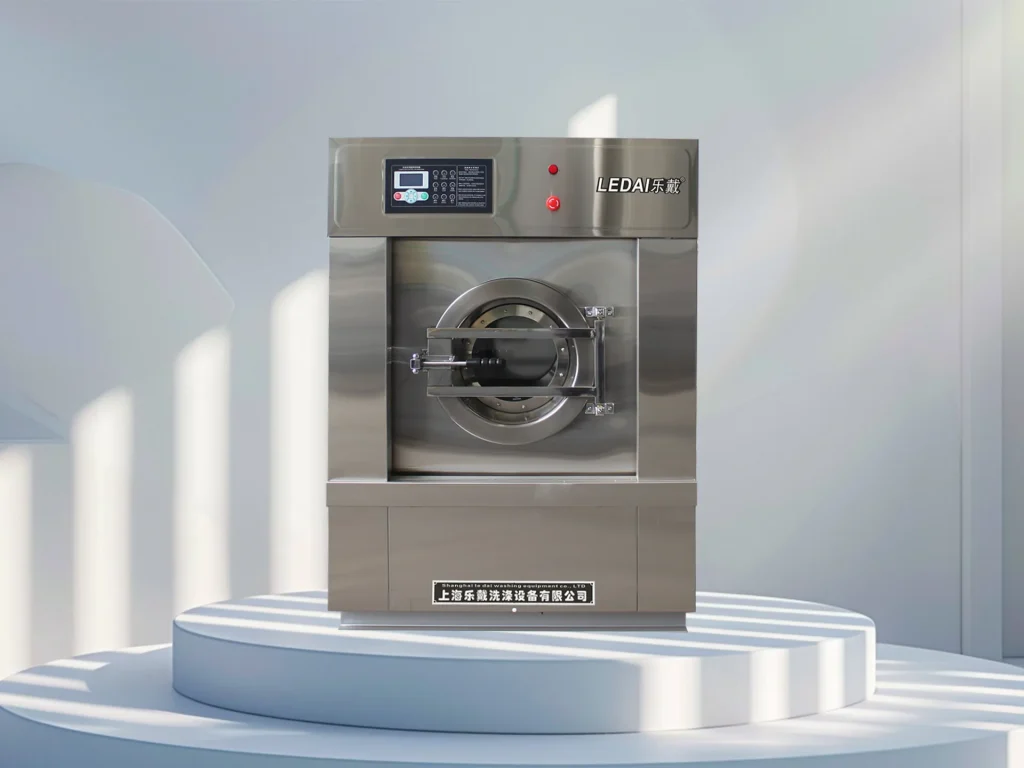
3.1. Reputable Brands in the Industrial Laundry Sector
Several well-established brands are known for producing high-quality, reliable commercial laundry equipment. Researching these brands and reading reviews can provide valuable insights into their reputation, performance, and customer support. Look for brands with a long history in the industry and positive feedback from other commercial users.
3.2. Key Features for Commercial Washers
Commercial washers come equipped with features designed for efficiency, durability, and ease of use in a demanding environment. Understanding these features will help you identify the models that best meet your operational needs.
3.2.1. Programmable Cycles and Customization
The ability to program and customize wash cycles is crucial for handling different types of laundry and soil levels. Look for machines that offer a range of pre-set cycles and allow for adjustments to water temperature, wash time, and spin speed.
3.2.2. Durable Drum Materials (e.g., Stainless Steel)
The drum is the heart of the washing machine. Commercial washers typically feature drums made of durable materials like stainless steel, which can withstand heavy use and resist corrosion.
3.2.3. Advanced Dispensing Systems
Efficient and accurate detergent dispensing is essential for optimal cleaning and cost control. Look for machines with reliable and programmable dispensing systems for detergents, bleach, and other laundry chemicals.
3.3. Essential Features for Commercial Dryers
Commercial dryers also come with specific features designed for efficiency and performance in a commercial setting. These features contribute to faster drying times, reduced energy consumption, and the longevity of the equipment.
3.3.1. Moisture Sensing Technology
Moisture sensors detect the moisture level in the drum and automatically stop the drying cycle when the clothes are dry. This prevents over-drying, saves energy, and reduces wear and tear on fabrics.
3.3.2. Large Drum Capacity for Bulky Loads
Commercial dryers often have larger drum capacities to handle the bigger loads typical in commercial settings, such as bedding and towels. Ensure the dryer capacity aligns with the capacity of your washers.
3.3.3. Robust Ventilation Systems
Proper ventilation is crucial for efficient drying and the safety of your laundry facility. Commercial dryers should have robust ventilation systems to effectively remove moist air.
4. Finding the Best Deals and Suppliers
Once you have a good understanding of your needs and the types of commercial washers and dryers for sale that might be a good fit, the next step is finding the best deals and reliable suppliers. This involves some research and careful consideration.
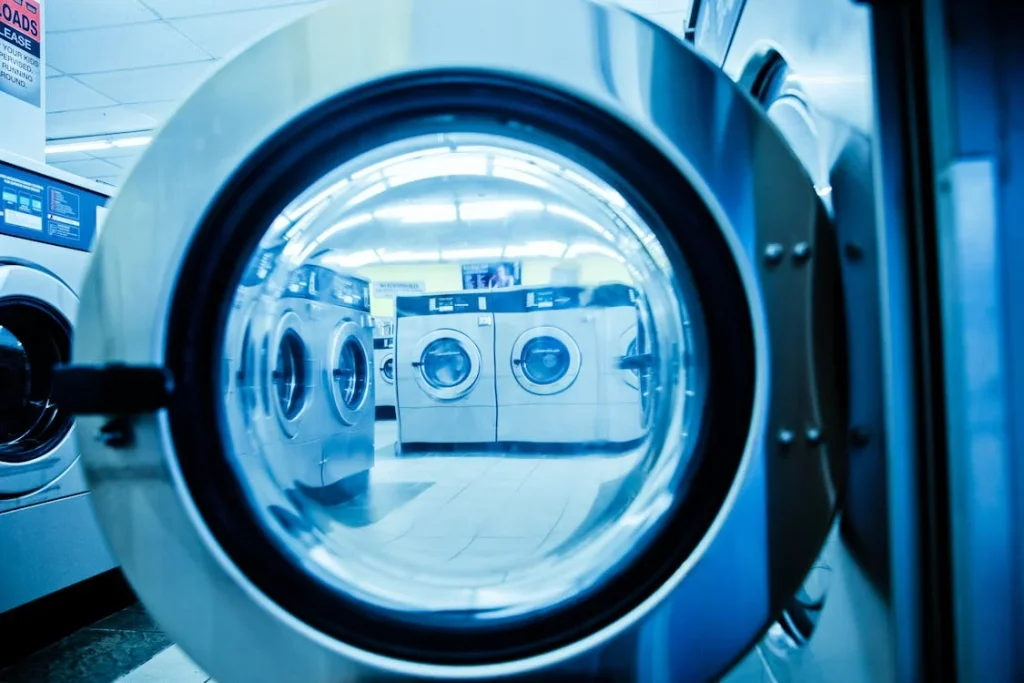
4.1. Where to Shop for Commercial Laundry Equipment
You have several options when it comes to purchasing commercial laundry equipment. These include direct manufacturers, authorized dealers, and online suppliers. Each option has its pros and cons in terms of price, selection, and after-sales support. Consider exploring different avenues to find the best fit for your business. You might even find refurbished options that offer significant cost savings.
4.2. Understanding Pricing and Budget Considerations
The cost of commercial laundry equipment can vary significantly depending on the type, capacity, brand, and features. Establish a clear budget before you start shopping and consider not only the initial purchase price but also the long-term operating costs, such as energy and water consumption, and potential maintenance expenses.
4.3. Evaluating Warranties and After-Sales Support
A comprehensive warranty and reliable after-sales support are crucial when investing in commercial laundry equipment. Check the warranty terms and ensure the supplier offers timely service and support in case of any issues. This can save you significant headaches and costs down the line.
5. Installation and Maintenance: What to Expect
The process doesn’t end with the purchase. Proper installation and regular maintenance are essential for ensuring the optimal performance and longevity of your commercial washers and dryers for sale. Understanding what to expect in these areas is important.
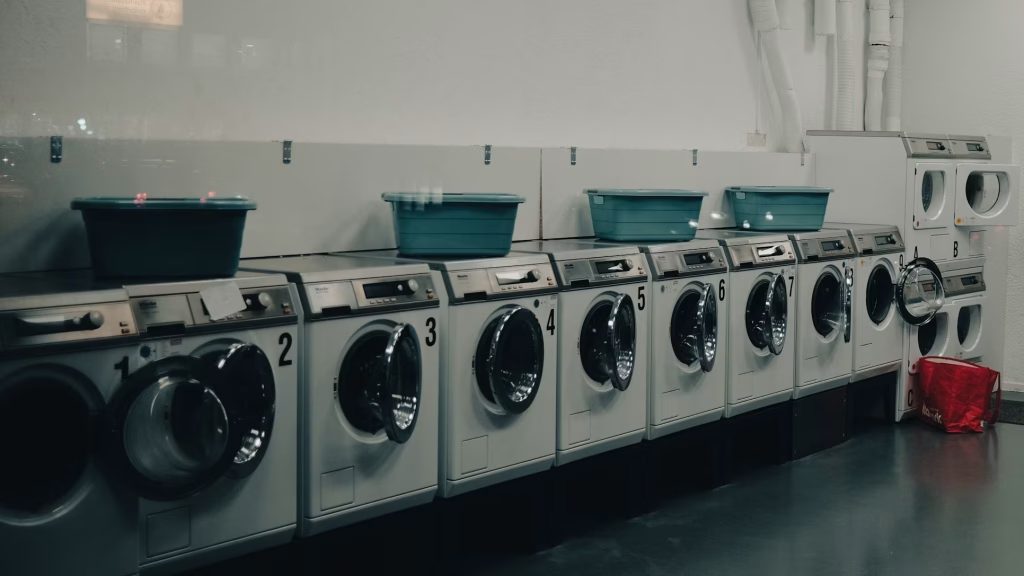
5.1. Preparing Your Space for Installation
Commercial laundry equipment often requires specific utility connections (electrical, gas, water, drainage) and proper ventilation. Ensure your space is adequately prepared before delivery and installation to avoid delays and additional costs. Consult with the supplier or a qualified technician regarding the specific requirements for the models you choose.
5.2. Importance of Regular Maintenance and Servicing
Like any machinery, commercial washers and dryers require regular maintenance to keep them running efficiently and prevent breakdowns. This includes cleaning, inspecting hoses and belts, and addressing any minor issues before they escalate. Establish a maintenance schedule and consider a service agreement with a reputable technician.
6. Making the Right Choice for Your Business
Choosing the right commercial washer and dryer for sale is a significant decision that can impact your business operations for years to come. Take the time to carefully assess your needs, research your options, and consider the long-term implications of your investment.
6.1. Assessing Your Long-Term Laundry Goals
Think about where your business is headed. Are you expecting growth that will increase your laundry volume? Consider your long-term laundry goals and choose equipment that can accommodate your future needs.
6.2. Considering Future Growth and Scalability
Opting for slightly larger capacity machines or a modular system can provide scalability as your business grows. Planning for the future can save you the cost and hassle of replacing equipment sooner than necessary.
7. Ready to Find Your Ideal Commercial Washer and Dryer?
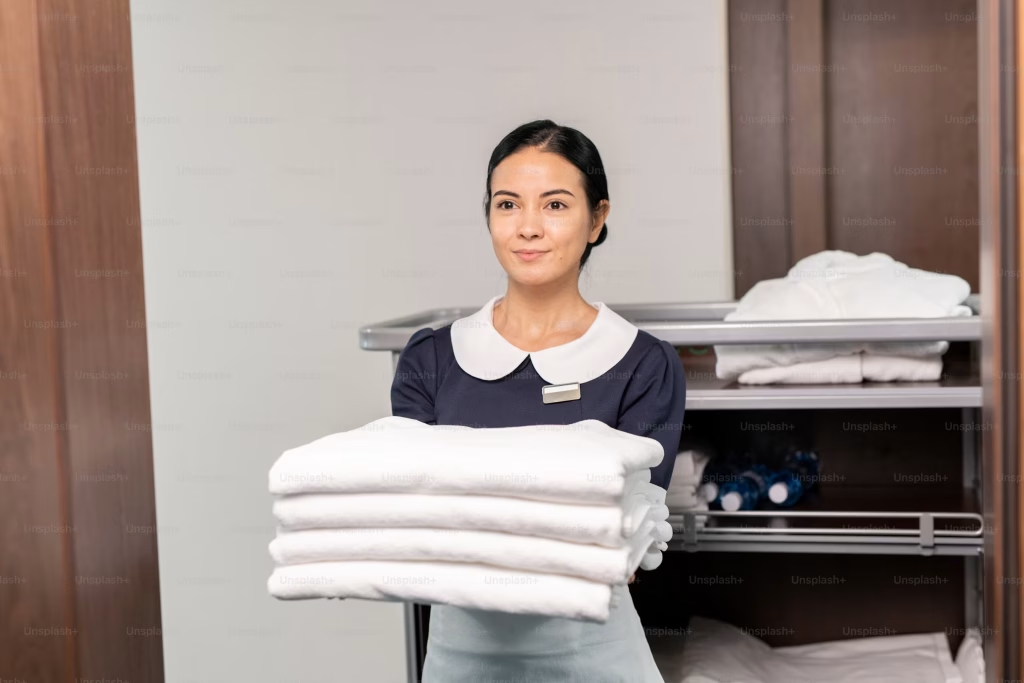
We hope this guide has provided you with valuable insights into the world of commercial washers and dryers for sale. Remember to carefully consider your specific needs, research reputable brands and features, and factor in long-term costs and maintenance. Investing in the right equipment is an investment in the efficiency and success of your business.
Ready to take the next step? Contact us today at https://spinwashing.com/contact-us/ to discuss your specific requirements and explore our range of high-quality commercial laundry solutions. Our team of experts is here to help you find the perfect commercial washer and dryer for sale to meet your business needs. Visit our main website at https://spinwashing.com/ to learn more about our offerings.
8. Frequently Asked Questions (FAQs)
Q1: What is the typical lifespan of a commercial washer and dryer? Commercial washers and dryers are built for durability and typically last between 10 to 15 years, or even longer with proper maintenance, significantly outlasting residential units.
Q2: Are commercial washers and dryers more energy-efficient? Many modern commercial washers and dryers are designed with energy efficiency in mind, often using less water and energy per load compared to older or residential models, leading to long-term cost savings.
Q3: Can I finance the purchase of commercial laundry equipment? Yes, various financing options are often available through manufacturers, dealers, or leasing companies to help businesses manage the upfront investment.
Q4: What kind of maintenance is required for commercial laundry machines? Regular maintenance includes cleaning lint traps (for dryers), checking hoses and connections, wiping down machines, and scheduling professional servicing as recommended by the manufacturer.
Q5: What size commercial washer and dryer do I need for my business? The ideal size depends on your daily laundry volume and the types of items you process. Consulting with a laundry equipment specialist can help you determine the appropriate capacity for your specific needs.
Here are some other articles that we think might interest you:
Top 10 Commercial Dryers: Best Features, Prices & Reviews
7 Vital Features for Commercial Grade Washer and Dryer Solutions
Best Commercial Washer and Dryer: Top-Rated Machines for Businesses

